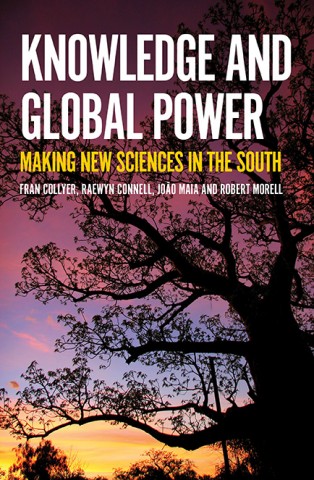When I picked up "Knowledge and Global Power: Making New Sciences in the South" (2019), by Collyer, Connell, Maia and Morrell, I had high expectations. We need more in-depth analyses of how knowledge is produced, disseminated, validated and valued, particularly from the perspective of the Global South. It begins: "The former imperial powers of the nineteenth and twentieth centuries, the rich countries of Europe and North America that we collectively call the global North, are still central in the knowledge economy. In this book we examine how their influence persists. But our focus is on the knowledge work of the system's periphery, the majority of the world, the global South." (p. xv)
The book covers three research thematics (HIV, climate change, gender). The "South" in this case was geographic (Australia, Brazil and South Africa), not necessarily the 'Global South' as it is normally used. In this sense, some questions that might be asked, such as in a place like Malawi or Burundi, were not asked. I also felt the methodology (qualitative, interviews) might have be better as a mixed-methods (one chapter used Web of Science, for some analytics) to show how the issues raised are experienced or how they manifest in a broader way. Given the large number of identifiers, it was not clear why anonymity was used – seems highly likely these individuals could be identified, if one wanted. Acknowledging their expert knowledge might give credit to these voices of the south.
One interesting reflecting on the changing landscape of knowledge work: "Surprisingly, scholars in our Southern tier countries (who published indexed by WoS between 2011 and 2016) almost unanimously completed their PhDs in their own countries… The high level of local PhDs in our three Southern tier countries suggests that while previous generations of scholars were forced to travel overseas to complete PhDs due to the lack of training facilities in their own countries; current scholars have access to satisfactory programs and are able to complete their education locally" (p. 118). While this is a positive indication of capacity in the south, it was certainly influenced by the countries selected (Australia, Brazil and South Africa).

